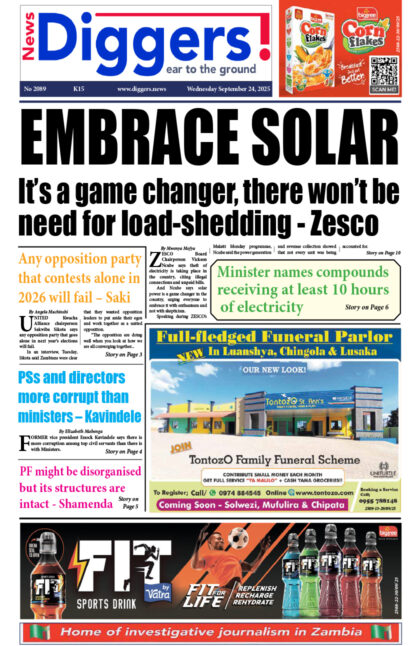Zambia’s new mining fiscal regime coupled with declining copper prices is likely to lead to reduced Foreign Direct Investment (FDI) inflows this year, says financial market analyst Mambo Hamaundu.
In an interview, Hamaundu predicted that the 2019 mining fiscal regime, which has led to planned job cuts in the mining sector, combined with falling copper prices on the international market, will realize less FDI inflows into the country this year.
Zambia’s net FDI for 2016 dropped to US $486.1 million from an all-time high record of around US $3.2 billion in 2014, according to Bank of Zambia (BoZ) data.
On the other hand, the implementation of the 2019 mining fiscal regime by government effective January 1, 2019, has seen an increase in mineral royalty rates by 1.5 percentage points at all levels of the sliding scale.
The tax rate hike has forced mining giants such as First Quantum Minerals (FQM) to announce job cuts of around 2,500 local and foreign employees expected to be completed by the end of the first quarter of this year, while Konkola Copper Mines (KCM) Plc have downsized its Nchanga Smelter operations due to low availability of concentrates.
“Indirectly, if your tax regime becomes unattractive as a country, it definitely has an influence on the decisions that a potential investor has to make be it foreign or local. Because the role of enterprise is they want to maximize their returns and, therefore, the more conducive the tax environment, the more likely a person will invest in a particular jurisdiction,” Hamaundu said.
“But I think that with the introduction of these taxes, which appear to be punitive on the mines, indeed, potential investors would probably have to think twice. Even with the current standoff where I think the mines and the government are still trying to reconcile have not yet reconciled their VAT refunds and issues surrounding that are not doing any good to support the cause of Zambia as an investment destination.”
He observed that copper prices, which have dipped to below US $6,000 per tonne, would equally prevent investments being made in Zambia despite it being among the largest copper exporters worldwide.
“The copper prices, the commodity prices are not performing particularly that well on the international market, so one would say, what are the prospects? Is it really worth it for one to put their money into the country?” Hamaundu wondered.
And Hamaundu pointed out that financial literacy in Zambia needs to be addressed.
“We have made a bit of improvement from the levels that we were way back, but I think that there is still a lot of work that we need to do as a country to improve the level of financial literacy. We must continue working on improving the levels of financial literacy of the citizens. I think it is very important for a country such ours which is faced with a lot of challenging situations, I think there’s the aspect of debt, there’s the aspect of unemployment, the economy generally is not performing that well,” said Hamaundu.
























